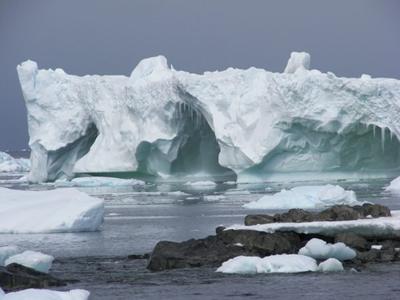University Professor is Project Partner in British Antarctic Survey to explore mysterious marine ecosystem

A team of scientists, led by British Antarctic Survey (BAS), is planning an urgent mission to investigate a mysterious marine ecosystem that’s been hidden beneath an Antarctic ice shelf for up to 120,000 years.
The researchers want to discover how this marine ecosystem will respond to environmental change in a climate-sensitive region. Dr Jon Copley, Associate Professor in Ocean Exploration and Public Engagement, is a Project Partner in this research, and will be helping to analyse images of the deep seafloor that the expedition hopes to collect.
The massive calving of the Larsen C Ice Shelf A68 iceberg, which is four times the size of London, has exposed around 5,818 km2 of seabed. The research team is planning a ship-borne research cruise to the region before the biological communities there begin to change following the movement of the giant iceberg. However, they can only achieve this if the iceberg continues on its path away from the remaining ice shelf.
Satellite monitoring will reveal options for navigating through the sea ice. All being well the team will spend three weeks in February 2018 on board the BAS research ship RRS James Clark Ross.
Marine biologist Dr Katrin Linse, from BAS, is leading the mission. She says:
“We have a unique opportunity to study how marine life responds to a dramatic environmental change. Normally, it takes years to plan the logistics for marine research cruises. Our funder, NERC and our ship operations team recognise the urgency to act quickly. Everyone is pulling out the stops to make this happen. All we need now is for the iceberg to move far enough away from the remaining shelf and the sea ice to melt so that we can navigate safely.
“It’s exciting to think about what we might find. Using a range of different techniques, our multi-disciplinary approach by an international team, will examine the marine ecosystem spanning the water column of the ocean all the way to the seabed and the sediment.”
